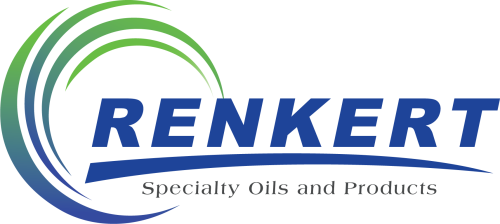Post published:January 3, 2022
We’ve written before about the benefits of highly refined, pure food-grade oil as a production aid in a variety of industries.
As an individual in your company in a position to influence operations management, you may already see the value of a product upgrade.
The question is, how do you sell the idea to your management team?
As discussed in Compoundings, the Independent Lubricant Manufacturers Association magazine, Noria Corporation recently published a white paper that addresses this very question.
In “How to Cost Justify a Lubrication Program,” the author lays out some good points that apply broadly to manufacturing. Here’s our take, as consultants and suppliers of food-grade oils and other specialty oils and fluids.
3 Tips for an Effective Food-Grade Oil Presentation
As a specialty oil supplier for four decades, Renkert Oil’s sales team has plenty of experience helping purchasers and product engineers navigate this scenario.
To you, the value is as clear as water-white isoparaffins. But taking your pitch to the CEO is another matter.
“Leaders who seek to achieve low-cost and/or high-quality output in mature markets will create a culture that is most receptive to lubrication excellence. Maintaining equipment more effectively through lubrication excellence is a long-term proposition.” – Noria Publishing
To speak into this culture, or to help create it, you have to answer a few critical questions satisfactorily:
- Just how important is oil quality to the bottom line, anyway?
- How will you demonstrate the return on investment?
- At the end of the day (or fiscal year), how much will this benefit the company?
Let’s tackle these one by one.
1. Focus on Improving Reliability
The routine use of high-quality oils is about maintaining operational efficiency and preventing overheating, breakdowns, or worse—and it all goes back to reliability.
You have to be prepared for the devil’s advocate argument against increasing investments like these. Management wants to know: When does the law of diminishing returns come into play?
Like any good liability insurance policy, the cost of superior lubrication must be balanced against the potential costs of an inferior approach.
That’s why the key to your sales pitch needs to be a reliability focus. You need to translate lubrication and maintenance into reliable:
- Yield. Especially in food manufacturing, the quality of your food-grade oil is directly related to your ability to consistently supply the market.
- Product Quality. Connect oil purity with your ability to control heat, production speed, product color, shape, performance, and more.
- Safety. Point out the critical role of flash points and non-irritating purity with your specialty oil selection to prevent safety hazards.
Assurance of reliability—not anything esoteric like rheological properties of plastics or the chemical composition of solvents—is what sells.
2. Outline a Method to Monitor Performance
Whatever your company’s resources, it’s important to develop an approach to demonstrate the effectiveness of your lubrication program.
Technologies to analyze vibration, monitor acoustics, perform thermographic analysis, and perform various other monitoring functions can provide a wealth of meaningful data. These allow you to uncover production problems early and make adjustments.
But even low-tech approaches to data collection are useful. There are many ways to determine where you stand today, set realistic goals, and measure progress against those goals.
Start by collecting baseline data about the frequency of incidents of overheating, slowdowns, breakdowns, off-specification products, and other meaningful data points. Make conservative projections for improvement, then lay out a plan to routinely collect the same data for comparison.
Again, the whole point of upgrading your food-grade oil is to improve reliability. With a robust monitoring plan in place, you can prove you’ve done just that.
3. Translate Metrics into Profits
To drive the point about reliability home, you’ve got to be prepared to translate lubrication excellence into a strong return on investment.
As Noria explains, it’s about speaking the “native language” of your audience:
“In lubrication, our language is that of centistokes, ISO cleanliness codes, beta ratings on filters, grease thickener types, base oil types, additive packages, grease guns, Zerk-fittings, etc. Managers usually speak a different language … dollars, Euros, yen – it all comes down to money.” – Noria Publishing
For all companies, you’ve got to draw a straight line between lubrication quality and increasing profits and/or the value of the company. If yours is a publicly-traded company, the greatest motivating factor is undoubtedly an increase in share price.
The proper use of high-quality oil on your production line, day in and day out, compared with an inferior product can have an enormous impact on profits over the long term. This is always how to bring your food-grade oil presentation home.
Partner with Renkert Oil for Food-Grade Oil and Other Specialty Oil Products
Manufacturing lubrication for food manufacturing is just one of many uses of Renkert Oil’s product line. Our base oils, process oils, and white oils are used to aid in the manufacturing of a wide variety of products, and in many household and personal care product formulations.
Whatever your industry, if you’re responsible for researching oils and solvents to improve the reliability of your operations and product quality, and ultimately increase profits, Renkert Oil can help.
We’re more than product experts. Renkert Oil also offers a global infrastructure of producers, refineries, transport partners, terminals and storage facilities, along with decades of logistics expertise, which translates into world-class supply security.
To learn more, contact us today to schedule your free consultation.

